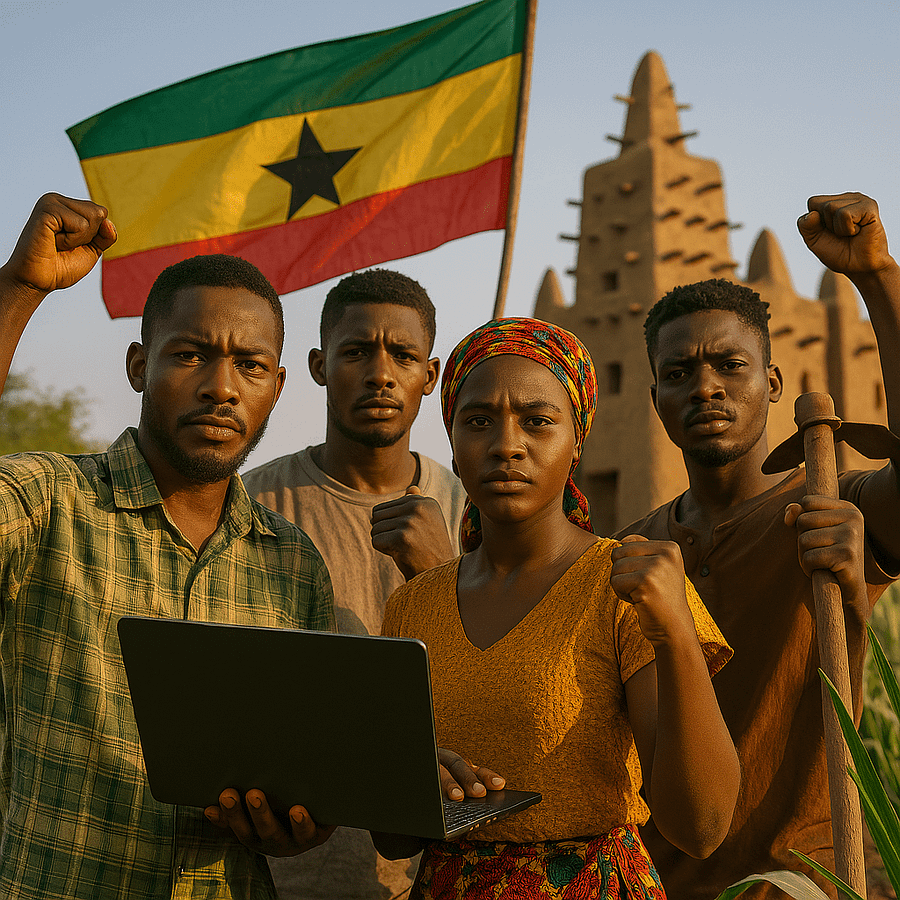
The Herald’s Call to Action at the Africa First Summit
Introduction
The drumbeat of Africa’s future echoes through its youth—a generation poised to either rise above the shadows of history or be ensnared by them. On April 4, 2025, The Herald published a powerful piece titled “African Youths Must Resist Neo-Colonialism, Shape the Future,” spotlighting the upcoming Africa First Summit themed “Africa First: Cultivating Unity for Economic Growth.” This summit aims to rally African nations against the insidious grip of neo-colonialism, a force that continues to exploit the continent’s resources and undermine its sovereignty. At PowerAfrika, we stand with this clarion call, advocating for a reconstructed Africa—mentally, spiritually, and economically—where the youth are not just participants but architects of a self-determined destiny.
Core Story: The Africa First Summit and the Fight Against Neo-Colonialism
The Herald’s article, published on April 4, 2025, emphasizes the urgent need for African youths to resist neo-colonialism—a system where foreign powers, often former colonial rulers, maintain economic and political dominance over African nations despite their formal independence. Neo-colonialism manifests through exploitative trade agreements, resource extraction with minimal local benefit, and political interference that prioritizes foreign interests over African sovereignty. The Africa First Summit, set to convene leaders, activists, and youth, seeks to counter this by fostering unity and economic growth driven by African agency.
The summit’s theme, “Africa First: Cultivating Unity for Economic Growth,” reflects a growing awareness of the need for intra-African collaboration. The African Continental Free Trade Area (AfCFTA), highlighted in recent discussions, aims to create the world’s largest free-trade bloc, reducing dependency on foreign markets and boosting local economies. However, The Herald warns that neo-colonial forces—through mechanisms like unfair trade deals and debt traps—continue to hinder this progress. For instance, China’s model of engagement, often involving loans for infrastructure in exchange for resource access, has been criticized as a new form of economic colonialism, creating dependency rather than empowerment.
The article also draws on historical context, noting that African leaders like Kwame Nkrumah, who championed Pan-Africanism, fought against similar forces decades ago. Nkrumah’s vision of a united Africa, free from external control, remains unfulfilled as neo-colonialism persists. The summit aims to reignite this vision, urging African youths to lead the charge by rejecting foreign-backed agendas and building a future rooted in self-reliance and unity.
PowerAfrika’s Take
At PowerAfrika, we echo The Herald’s call for African youths to resist neo-colonialism—but we take it further. This isn’t just a battle against external forces; it’s a war within, against the complacency and complicity of African elites who enable neo-colonial exploitation for personal gain. The youth must harness their collective power—projected to be 42% of the global youth population by 2030—to redefine Africa’s trajectory. Unity isn’t just a slogan; it’s a weapon against the fragmentation that neo-colonialism thrives on.
To empower this movement, practical tools are essential. Young activists can use AiReelGenerator and Renderlion to create compelling digital content that amplifies their message globally, rallying support for a united Africa. In rural communities, where neo-colonial exploitation often hits hardest, a Water Pump can ensure access to clean water, reducing dependency on foreign aid. Health challenges, exacerbated by external neglect, can be mitigated with a Mosquito Repellent, protecting families from malaria. Sustainable energy via a Solar Charger can power education and communication, breaking the cycle of poverty. Finally, mental resilience is key—MBL – Mental Bodybuilding Lab offers resources to strengthen the psychological fortitude needed for this fight.
We also urge the youth to join broader movements for justice, like our Rename Kotoka Airport Petition, which honors Africa’s heroes while challenging neo-colonial legacies in our public spaces.
A Little-Known Fact
Did you know? Kwame Nkrumah, a fierce advocate for African unity, proposed a Union Government for Africa at the 1965 Accra Summit—an idea that failed due to resistance from leaders with vested interests in maintaining division. This historical missed opportunity underscores the urgency of the Africa First Summit’s mission today.
Conclusion
The Africa First Summit is a beacon of hope, but its success hinges on the youth’s resolve to reject neo-colonialism and forge a united, self-reliant Africa. At PowerAfrika, we believe this generation can turn the tide, building an Africa that thrives on its own terms—mentally, spiritually, and economically. The future isn’t a gift bestowed by others; it’s a garden cultivated by those bold enough to plant the seeds.
Call to Action
African youths, the time to shape your future is now. Join the movement to resist neo-colonialism and cultivate unity for economic growth. Visit PowerAfrika.com to explore how we can rebuild Africa together—one story, one action at a time.
